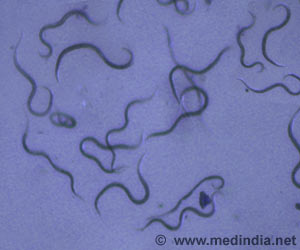
Previous studies from the 1980s found that the rate of colonization peaked during the first six months of life, and then declined, as the gut microbiota became more complex. A 2000 study by the current study author found that colonization by C. difficile kept rising until about a year of age.
"We think that this is the result of an impoverishment of the gut flora, that infants have fewer types of bacteria in their gut, compared to 30 years ago," says first author Ingegerd Adlerberth, of the University of Gothenberg, Sweden. "It is known that gut microbiota of high complexity suppresses C. difficile growth and toxin production. That is why treatment with broad-spectrum antibiotics is a risk factor for C. difficile disease."
The paper concludes with a warning that the prevalence of toxigenic C. difficile bacteria in the gut of infants and young children "provides ample opportunity for spread to individuals at risk for C. difficile disease."
C. difficile disease has been notoriously hard to treat in the elderly, who often undergo numerous courses of antibiotics without eliminating the disease. Recently, a still highly experimental treatment, fecal transplant, has proven far more successful. That treatment involves taking fecal material from a healthy person, and inserting it into the diseased patient's colon.
A copy of the manuscript can be found online at http://bit.ly/asmtip1213a. The article is scheduled for formal publication in the January 2014 issue of the Journal of Clinical Microbiology.
Advertisement









